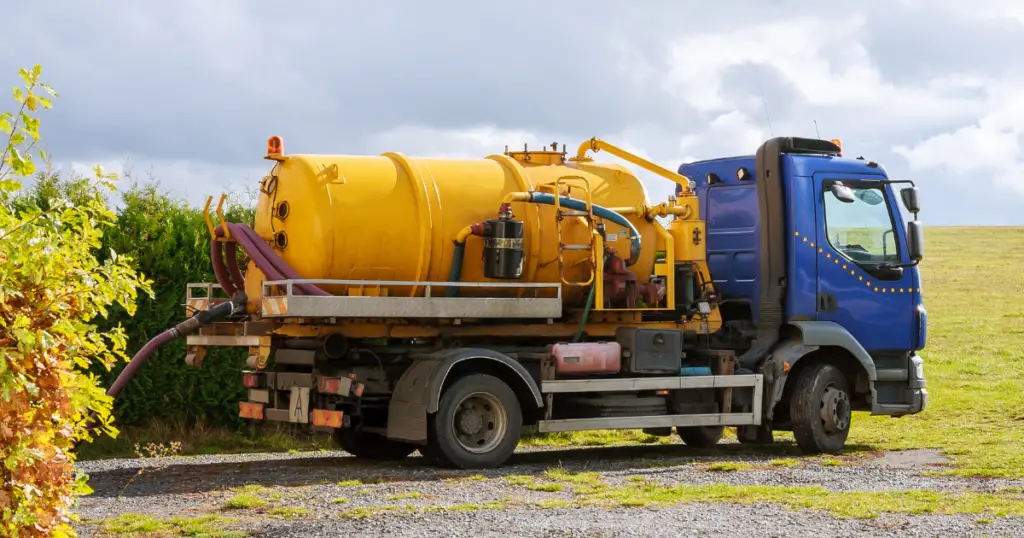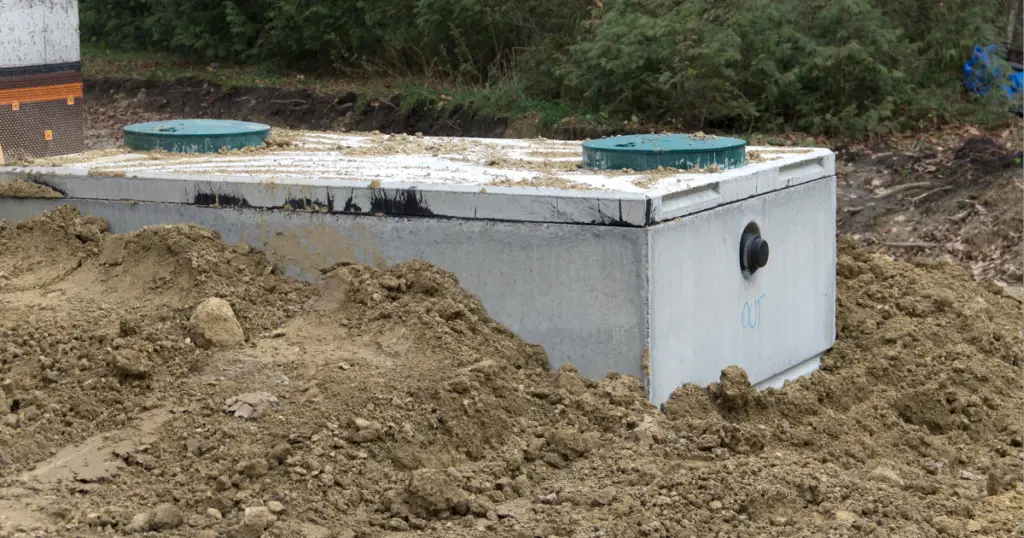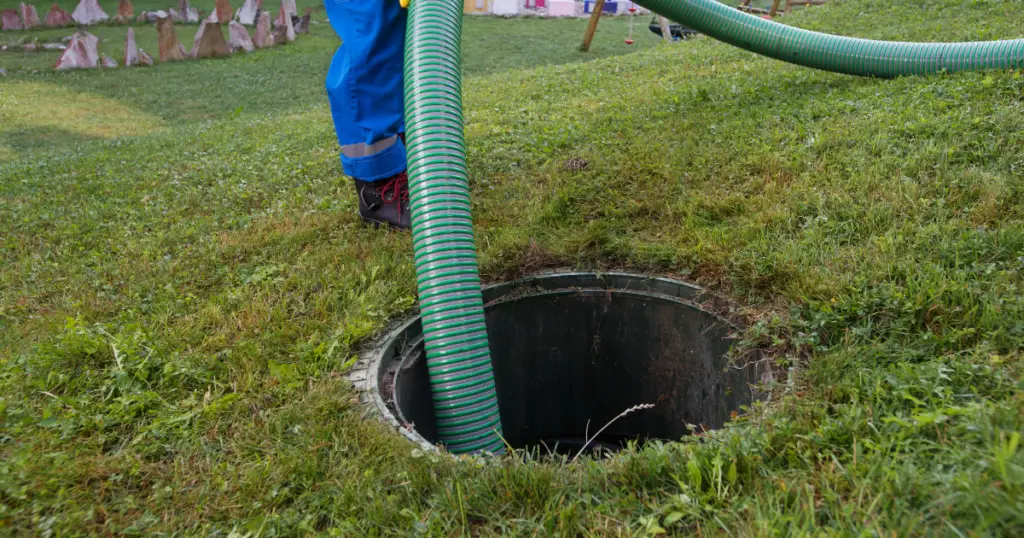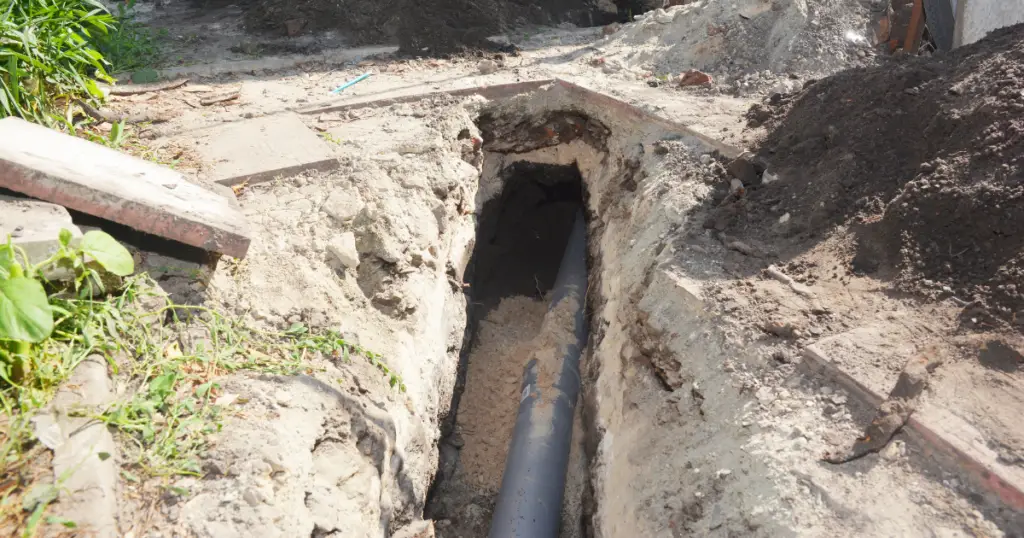Septic tanks are an important and often neglected part of the home maintenance routine. When not properly taken care of, they can become a major problem for homeowners.
Septic tank overflow is an increasingly common problem across the country. It can cause significant damage and costly repairs from rural farms to urban homes. It also has the potential to contaminate our water supply and lead to serious health risks.
If you want to protect your home from septic tank overflow, you must understand the causes and consequences of this dangerous situation. In this article, we will provide an in-depth look into what may cause a septic tank overload and how to prevent them from occurring in your household.

What are Septic Tanks for?
Septic tanks are a type of on-site sewage treatment system used in areas without access to a public sewer system. They collect and treat wastewater from homes, businesses, and other sources. The wastewater is stored in the tank and then released into a drain field where it is filtered through the soil before entering groundwater or surface water. Septic tanks help protect our water supply from contamination.
It is an underground wastewater storage system used to treat and dispose of sewage. It typically consists of a large concrete or plastic tank with an inlet and outlet pipe connected to it. Wastewater flows into the tank where it is processed, broken down by bacteria, and then discharged into a soakaway or other absorption area through the outlet pipe.
Why is my Septic Tank Overflowing?
Septic tank overflows are a common problem that can cause serious damage and costly repairs. There are many potential causes of septic tank overflow, including:
- Excessive Water Consumption: Your septic system has been built to process a certain volume of daily gallons. Going over this amount can cause flooding and is more likely during holidays when extra people use the bathroom, shower, or sink for extended periods. Taking an excessive number of baths or doing too much laundry also puts your tank at risk of overflowing. To prevent any untimely issues from occurring with your septic system.
- Heavy Rainfall: If you experience heavy rain in your area, this can cause your septic tank to become inundated and overflow. Your septic system is a complex, intertwined structure that relies on each element working together efficiently. The drainage field soaks up the wastewater and sends it underground – however, severe rainstorms can cause the area to become oversaturated with water, which in turn leads to overflows and blockages both inside your home and outside in nature.
- Dispose of Chemicals that Kill Helpful Bacteria: Many household items such as cleaners, bleach, toilet cleaners, and even drain uncloggers contain toxins that are fatal to the beneficial bacteria responsible for breaking down solids in your septic tank. Such harsh household cleaners that we deem safe for humans can harm the helpful organisms living within our tanks.
- Water Table Level: When the water table level is high, it can cause your septic tank to flood and overflow. During the rainy season, or when your area experiences a period of heavy rainfall, it can cause the water table level to rise and put extra pressure on your septic system.
- Free Drainage: If there are any blockages in your drainage lines, such as from tree roots or other debris, this can prevent adequate drainage from the septic tank, leading to an overflow.
- Shared Septic Tank: If multiple households share a single septic tank system, it could become overloaded due to a shared resource strain.
- Blocked Exit Drains: The most common septic tank problems are blockages of any type. An accumulation of solid waste in the exit drains can block them up and cause an overflow.
- Tree Roots: Trees might seem harmless, but they can be a major problem when it comes to septic systems. Their roots have the power to enclose and break tanks – nothing could be more disastrous! Furthermore, tree roots seek out nutrient-rich sewage pipes that may already be leaking, causing them to clog up and overflow. Be aware of these issues and do regular maintenance to ensure all piping is functioning properly.
- Strong odors: The presence of strong odors may indicate that your tank is full or has reached capacity and needs immediate attention before a septic tank overflow.
- Build-up of Solids: An accumulation of solids in the septic systems over time leads to an eventual build-up, leading to overflows if left unchecked.
- Collapsed Septic Tank: Over time, a collapse of an aged or worn-out septic tank may lead to overflows as well if not repaired timely.
- Irregular Maintenance Routines: Without regular cleaning, maintenance, and inspection routines for the septic system components, there is a greater chance for something going wrong, resulting in an overflow of storage tanks after some time passes by without paying attention to getting what was needed to be done regularly for prevention purposes
How To Stop Your Septic Tank From Overflowing?
Septic tank overflow is a common problem and can be quite costly. Here are some tips for avoiding septic tank overflow:
- Be Aware of What You Flush: Certain items like diapers, sanitary napkins, and feminine hygiene products should never be flushed down the toilet as they can cause blockages in your drain pipes, which may lead to an overflow.
- Check Areas Around the Septic System Properly: Regularly pump your septic tank and inspect any drain pipes that connect to it to ensure wastewater can flow freely without any blockages. Make sure the surrounding soil is also properly graded for proper drainage.
- Do Not Park On It: Avoid parking on or near your septic system as it will crush the pipes, causing them to be blocked, leading to an overflow.
- Prepare For Holidays: Holidays often mean more visitors, more laundry, and more water consumption – all of which may put additional strain on your septic tank system. To prevent an overflow, make sure you take necessary steps, such as opting for a smaller load of laundry during peak times and reducing shower time during holidays.
What To Do If Your Septic Tank Overflows?
If your septic tank overflows, acting promptly to avoid further damage is important. Here are some dos and don’ts if your septic tank overflows:
Do:
- Move people and pets away from the affected area;
- Contact a professional plumber or a septic tank contractor immediately;
- Identify the source of the problem so that it can be dealt with quickly and effectively;
- Reduce water consumption in the house by limiting shower time, turning off all taps, and avoiding laundry and dishwashing until the problem is fixed.
Don’t:
- Do not attempt to repair the septic tank yourself;
- Do not flush anything else down the toilet or try to cover up odors with cleaners;
- Do not pour drain cleaner into your toilets or drains as this could cause further damage.
How Do I Know if My Septic Tank Is Collapsing & What Causes Septic Tank Collapse?
If your septic tank collapses, it may be difficult to tell until it’s too late. Here are some warning signs of a collapsing septic tank:
- Cracks or bulges in the walls or roof of the tank;
- Water pooling near the tank;
- Clogs in the outflow pipes;
- Unusual odors coming from the drain field or septic system.
Collapsed septic tanks can occur due to various reasons such as waterlogging, soil type, age of the system, defective components, clogging, or improper installation. Staying on top of septic tank maintenance and pumping your septic tank regularly to prevent collapse is important.
Septic System Maintenance & Professional Help
Maintaining your septic tank properly is essential for preventing problems such as overflowing, clogging, and septic tank collapse. Here are some tips to keep your septic system running smoothly:
- Pump out your septic tank regularly;
- Have the components of the system inspected regularly;
- Ensure proper use of the septic system;
- Fix any damaged parts immediately;
- Avoid flushing materials other than waste and toilet paper down the toilet.
It is important to seek professional help if you suspect something is wrong with your septic system. A qualified plumbing contractor can inspect the system, identify any potential problems, and suggest a course of action.
[/et_pb_text][/et_pb_column][/et_pb_row][/et_pb_section]




